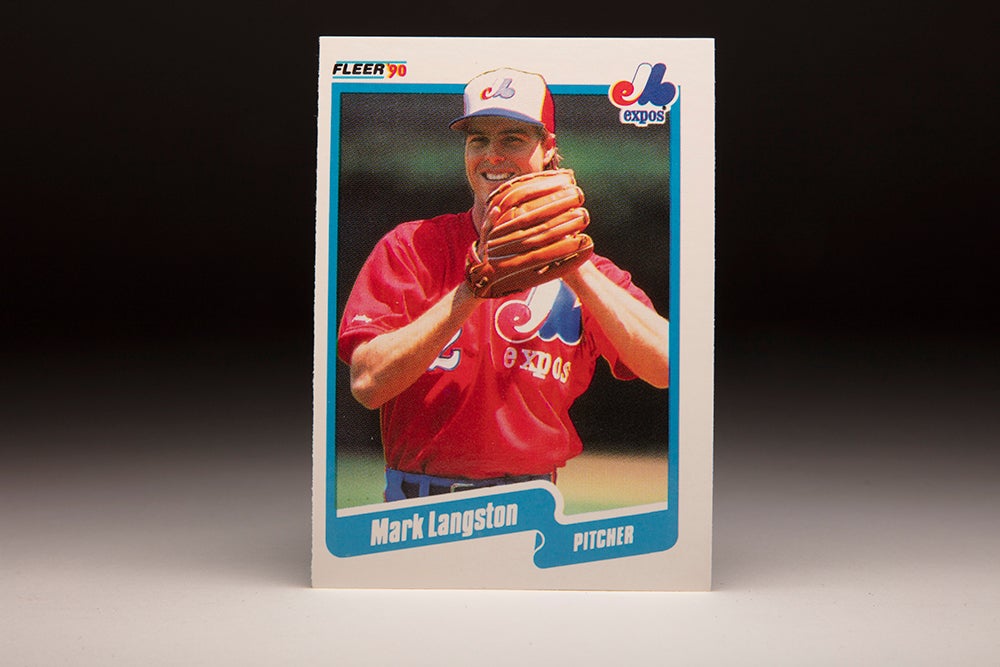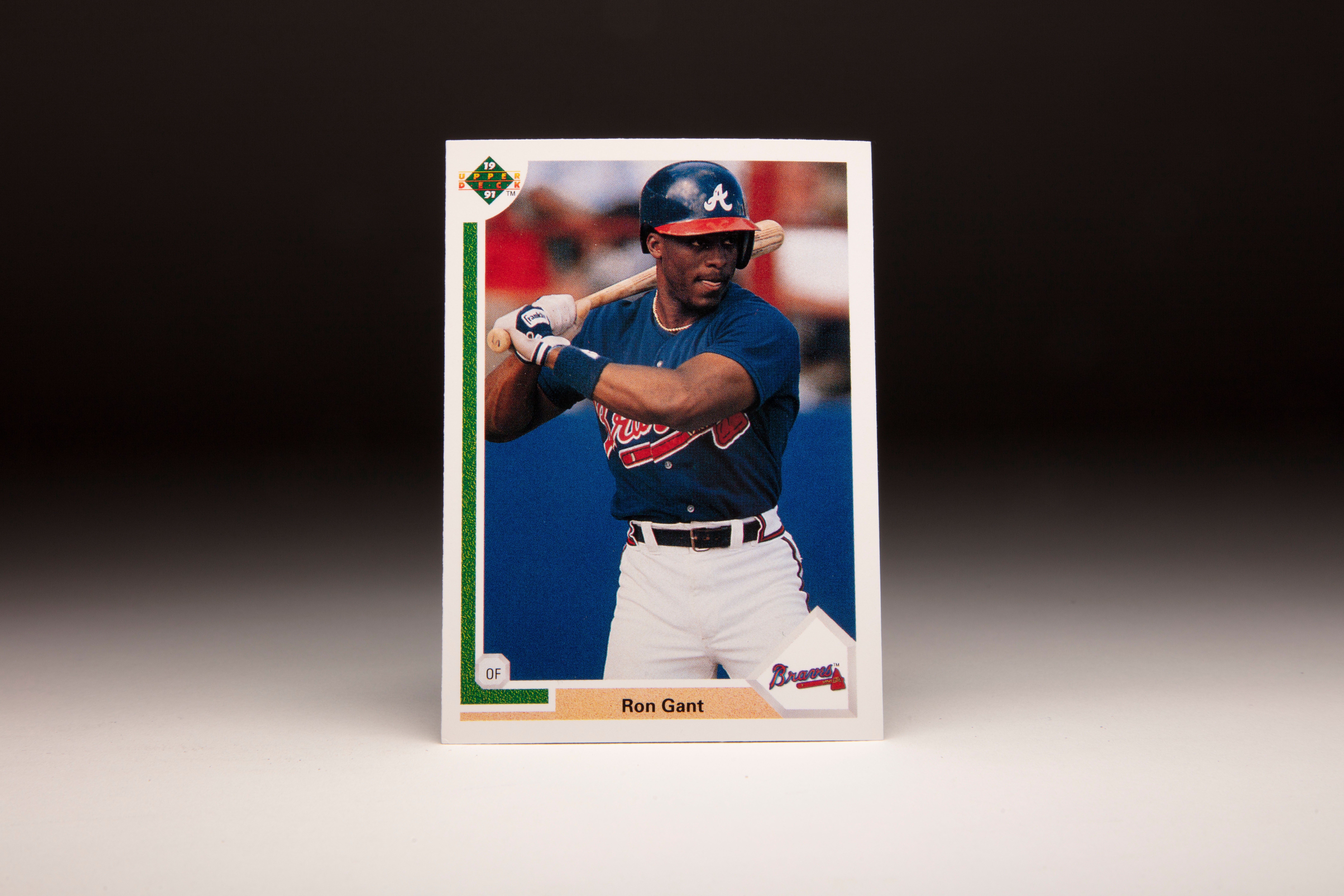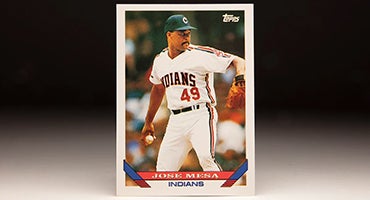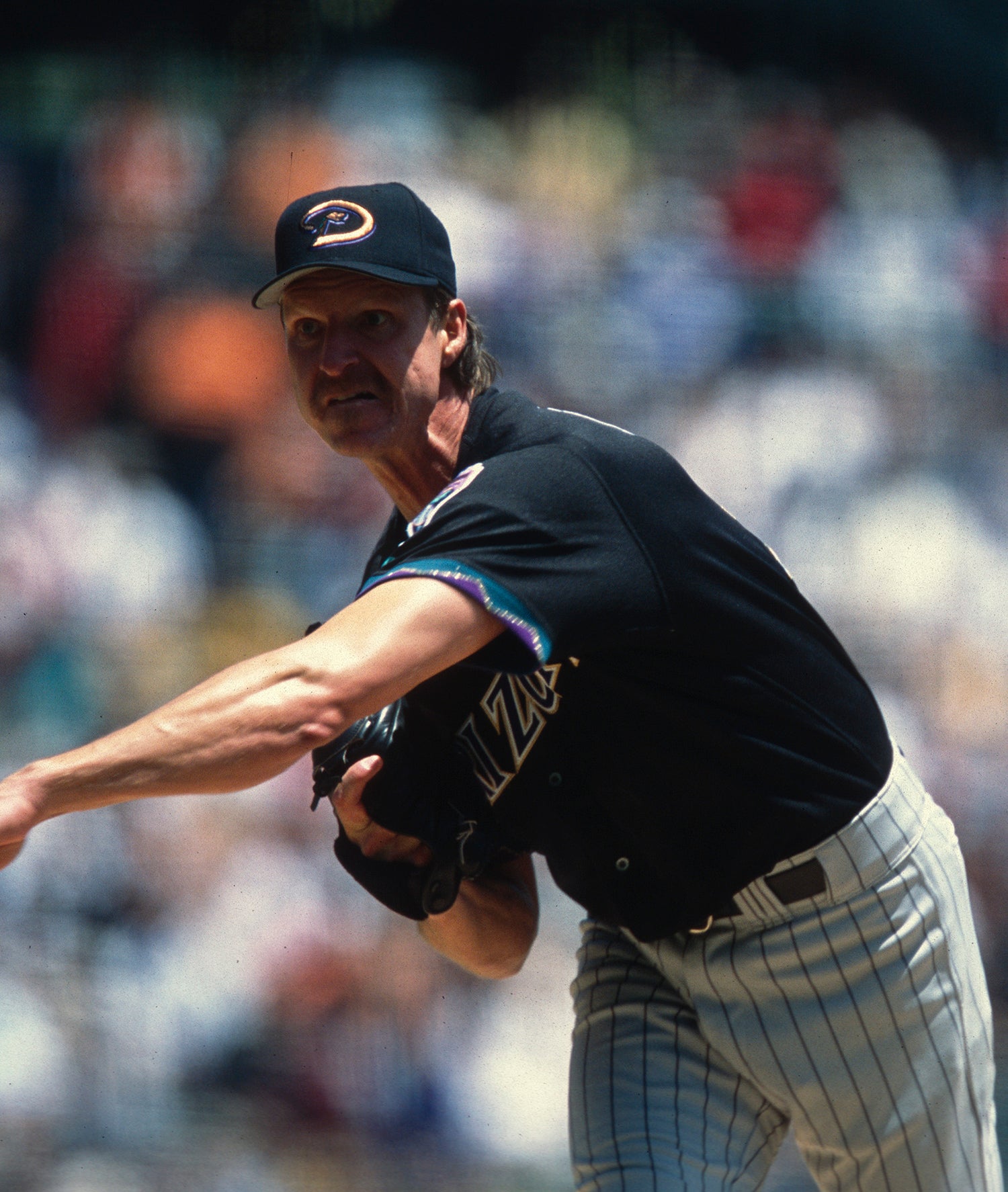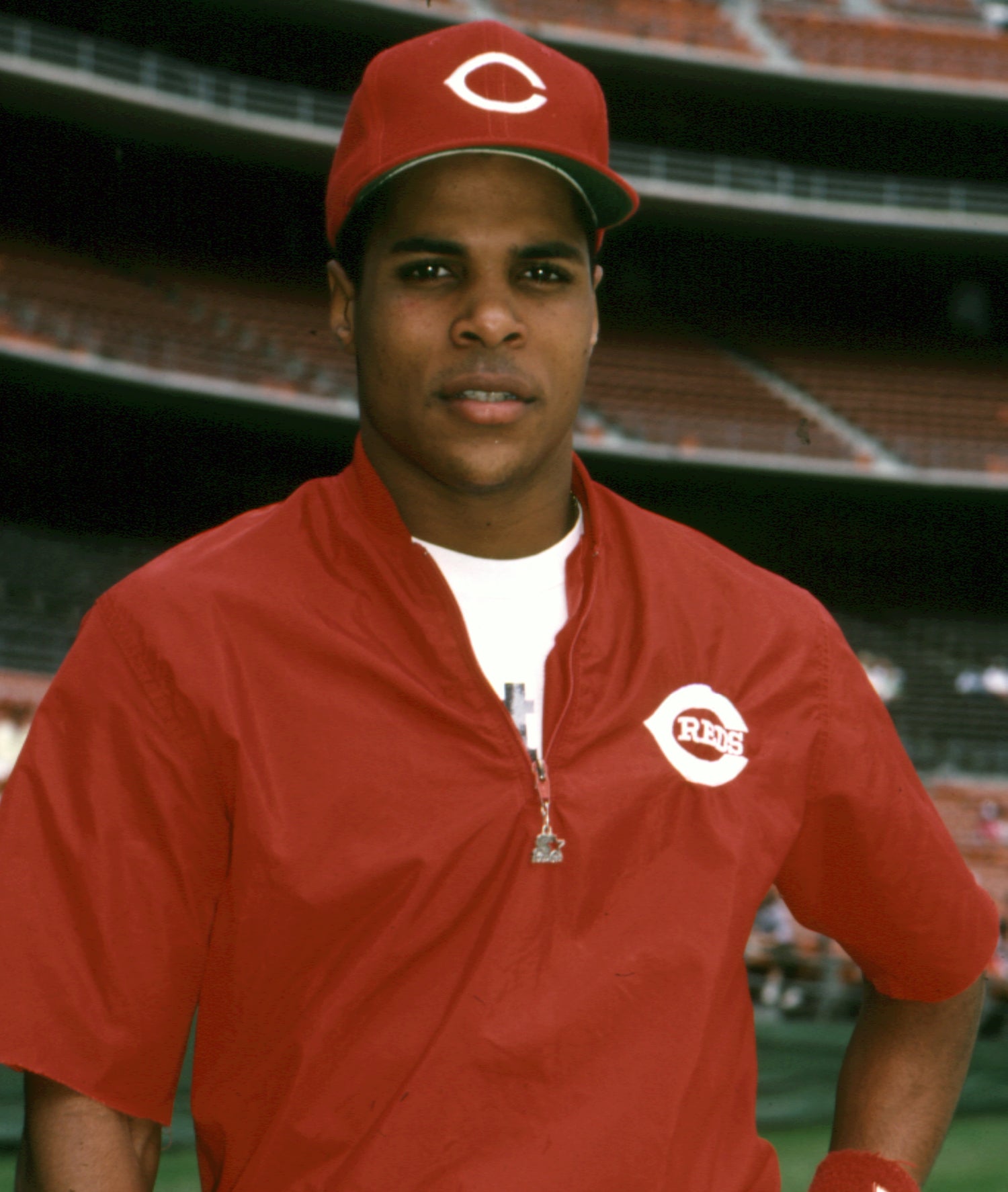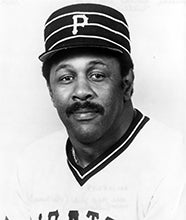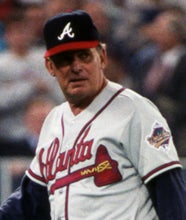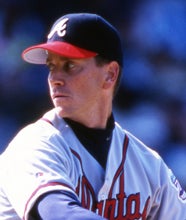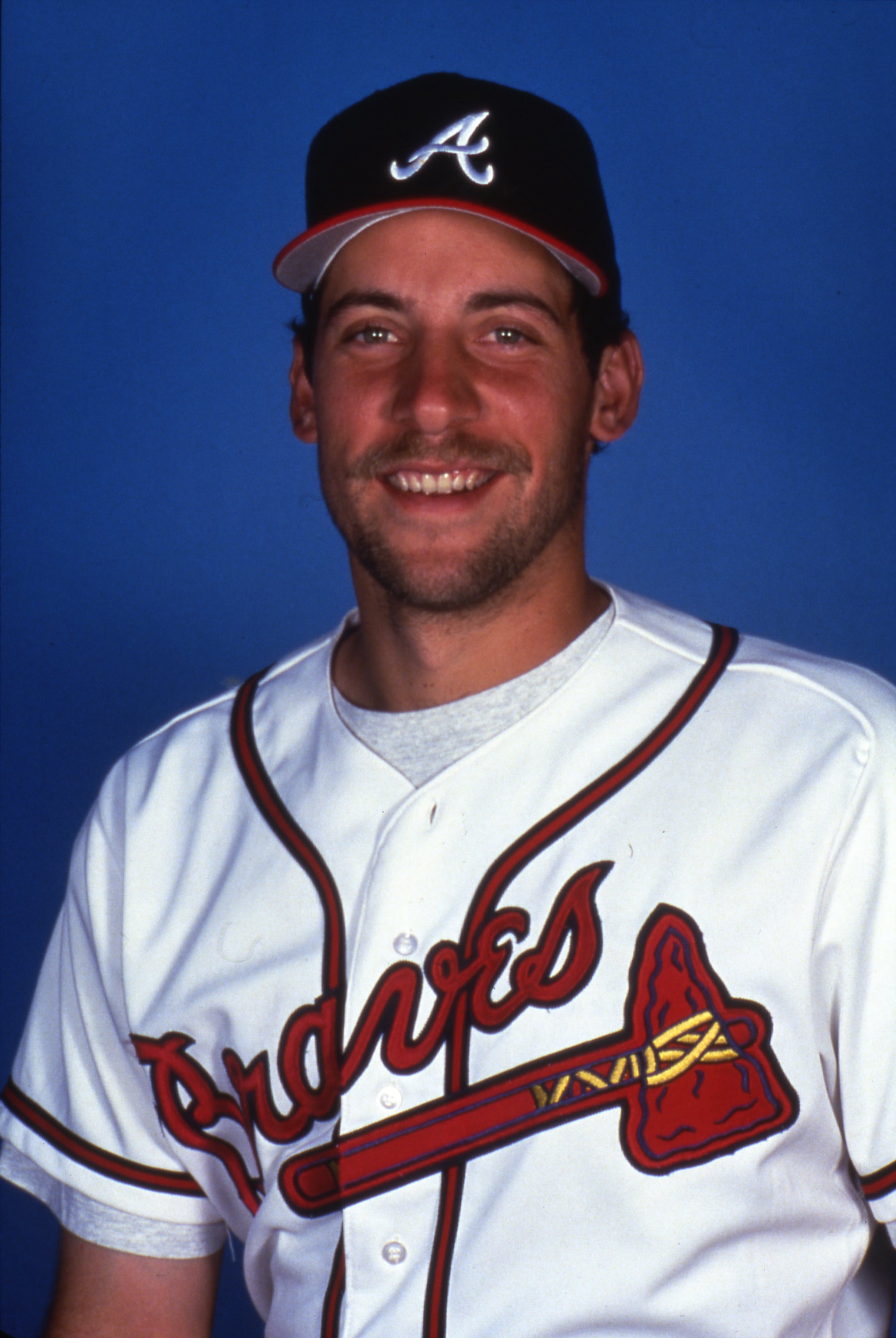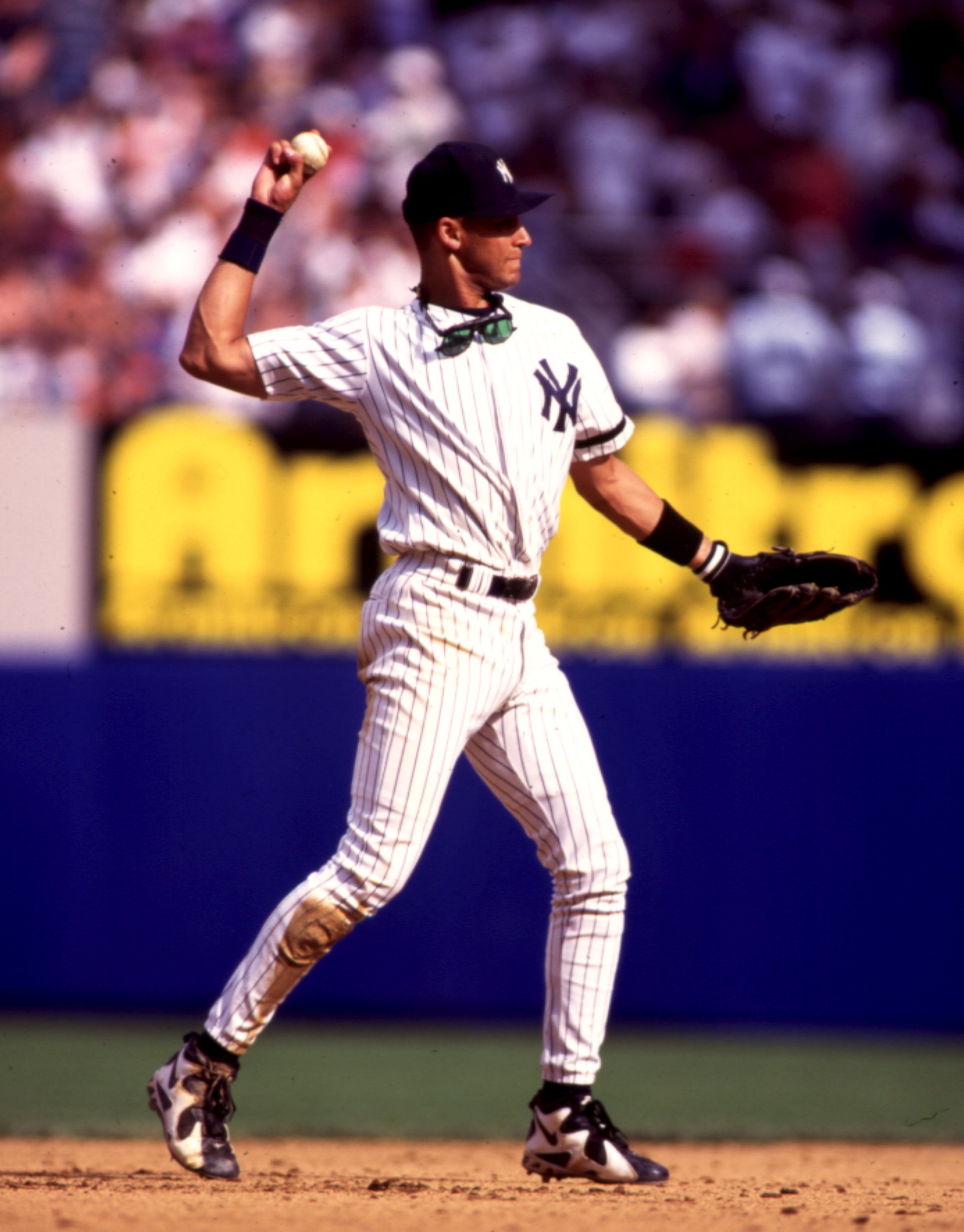- Home
- Our Stories
- #CardCorner: 1990 Fleer David Justice
#CardCorner: 1990 Fleer David Justice
With one swing of the bat in the 1995 World Series, David Justice went from fan target to Atlanta hero.
In the celebration of that moment, few would have guessed that Justice delivered the crowning blow of a Braves dynasty that featured 14 division titles but only one win in the Fall Classic.
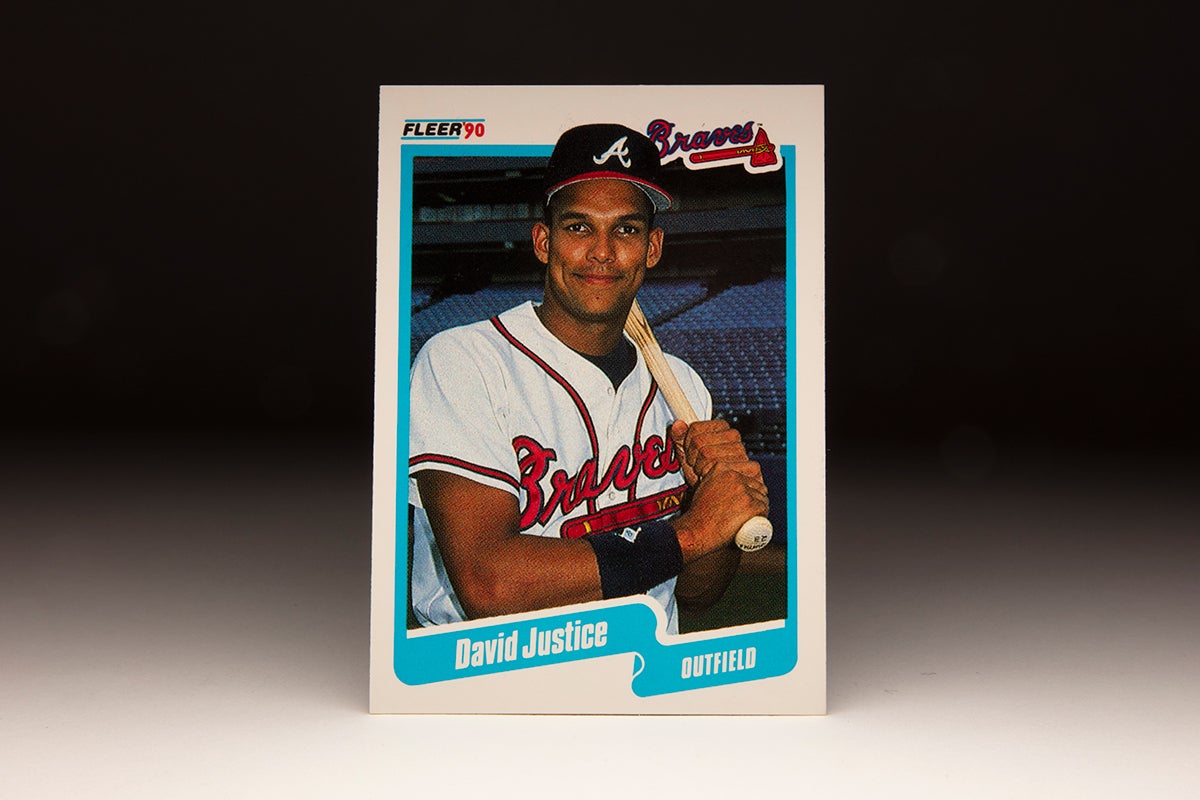
Born April 14, 1966, in Cincinnati, Ohio, Justice was an honors student who was able to skip seventh and eighth grade. He was raised by his mother, Nettie, who stressed academics. Growing up in the Cincinnati neighborhood of Avondale, he graduated from Covington Latin High School in Covington, Ky., just over the Ohio state line, in 1982 at the age of 16 – and was best known for his basketball ability.
Justice led the Greater Cincinnati area in scoring during the 1981-82 high school season, averaging 26.5 points and 5.5 assists per game. He was named first-team Catholic All-America by the Chicago Catholic newspaper.
“It’s really quite a compliment for David,” Rev. Edwin Heile, Justice’s high school coach, told the Cincinnati Enquirer, noting that Justice was rated as the seventh-best player on the 25-person first team. “The six players chosen ahead of him are all going to big Division I schools like DePaul and Duke.”
Justice set Covington Latin High School records for points in a career (1,375), season (795) and game (44). The school, however, only had a baseball team during his first two years – and Justice played just one season.
“I was going to be a basketball player,” Justice told Cox News Service. “That’s all I really thought about until I got to college. Baseball never entered my mind.”
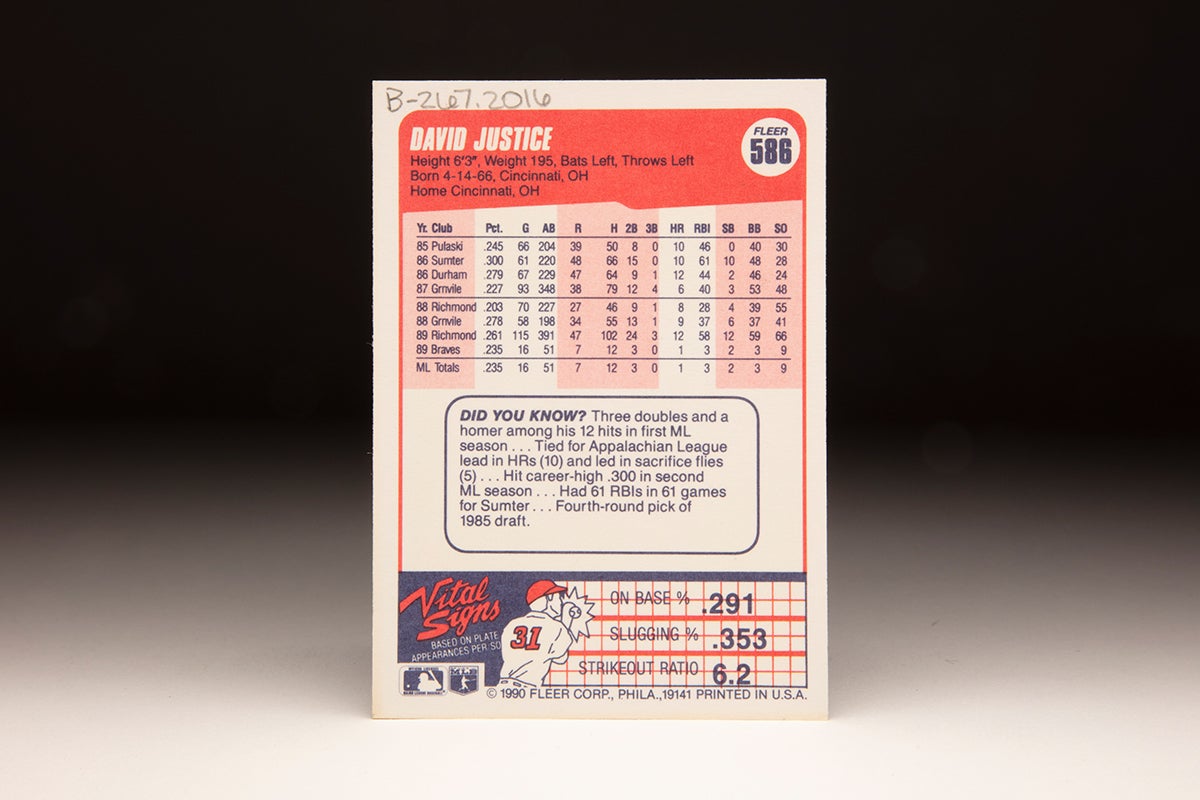
Justice enrolled at Thomas More College in Crestview Hills, Ky., to play basketball but walked onto the baseball team in 1984. But after just one season, Justice decided to concentrate on basketball.
“David stood out like a sore thumb,” Thomas More baseball coach Jim Connor – who doubled as the Saints’ basketball coach – told the Enquirer. “He had the smoothest swing I ever saw.
“I told him: ‘Look, you’re not going to play in the NBA. But with your power, arm and footspeed, I believe you’re going to play with somebody in the major leagues. But you’ve got to give the scouts more of a chance to see you. I don’t care where you play baseball – here or somewhere else, but you have to play.”
Justice changed his mind, and in 1985 the Braves selected him in the fourth round of the 1985 MLB Draft. Of the 93 players selected in front of Justice that year, only Barry Bonds (162.8), Randy Johnson (101.1), Rafael Palmeiro (71.9), Barry Larkin (70.5) and Will Clark (56.5) totaled a better career Wins Above Replacement figure than Justice (40.6).
The Braves sent Justice to Pulaski of the Appalachian League, where he hit .245 with 10 home runs and 40 walks in 66 games. He began the 1986 season with Class A Sumter of the South Atlantic League, hitting .300 with 10 home runs in 61 games before earning a promotion to Class A Durham of the Carolina League. Justice finished the season with a .290 batting average, 22 home runs and 105 RBI in 128 games over two levels, earmarking himself as a top prospect.
Justice struggled in his first taste of Double-A ball in 1987 with Greenville but was still promoted to Triple-A Richmond to start the 1988 season. He hit just .203 and was returned to Greenville, where he batted .278 in 58 games. He totaled 17 home runs across the two levels that year and reported to Spring Training in 1989 with a chance to win the right field job at the major league level.
“I was getting myself out a lot,” Justice told the Atlanta Constitution of his time in Richmond in 1988. “It wasn’t a matter of me not progressing fast enough physically. It was a mental thing more than anything else.”
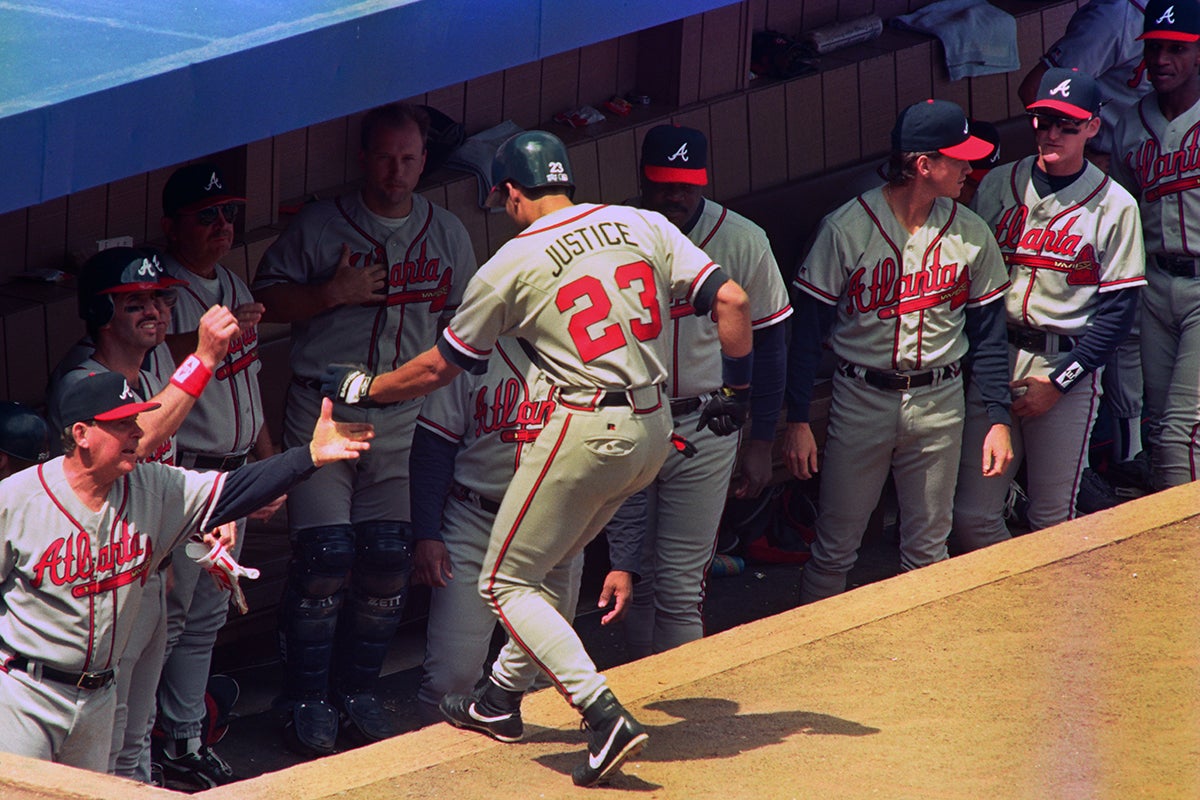
The Braves sent Justice back to Richmond to start the 1989 campaign, and he was hitting .243 with three home runs and 21 RBI when the Braves brought him to Atlanta on May 23 after left fielder Lonnie Smith was sidelined with an ankle injury. Justice went right into the starting lineup as the right fielder and singled against the Pirates’ Randy Kramer on May 24 for his first big league hit.
He returned to Richmond after hitting .050 in eight games and was then recalled in September when rosters expanded, appearing in another eight games down the stretch and hitting his first big league homer on Sept. 19 vs. Houston’s Mike Scott.
“David is one of those guys who wants it all right now,” Braves roving hitting instructor Willie Stargell told the Constitution when Justice first got to the big leagues. “David wants to get a hit every time. We want him to concentrate just one at-bat at a time, to get quality at-bats.”
Justice began the 1990 season at Richmond but returned quickly to Atlanta after hitting .356 with eight extra base hits in 12 games. He hit safely in his first 10 games with the Braves, cooled off a bit into the summer and then found a groove down the stretch, raising his average from .239 to .282 over his final 58 games by going 69-for-209 (.330) with 20 homers, 50 RBI and 44 runs scored – almost all of which came after Braves legend Dale Murphy was traded to the Phillies on Aug. 3. Justice finished the year with 28 home runs, 76 runs scored and 78 RBI and came within one vote of being a unanimous choice for National League Rookie of the Year.
“David Justice is going to be an All-Star one day,” Braves manager Bobby Cox told Cox News Service.
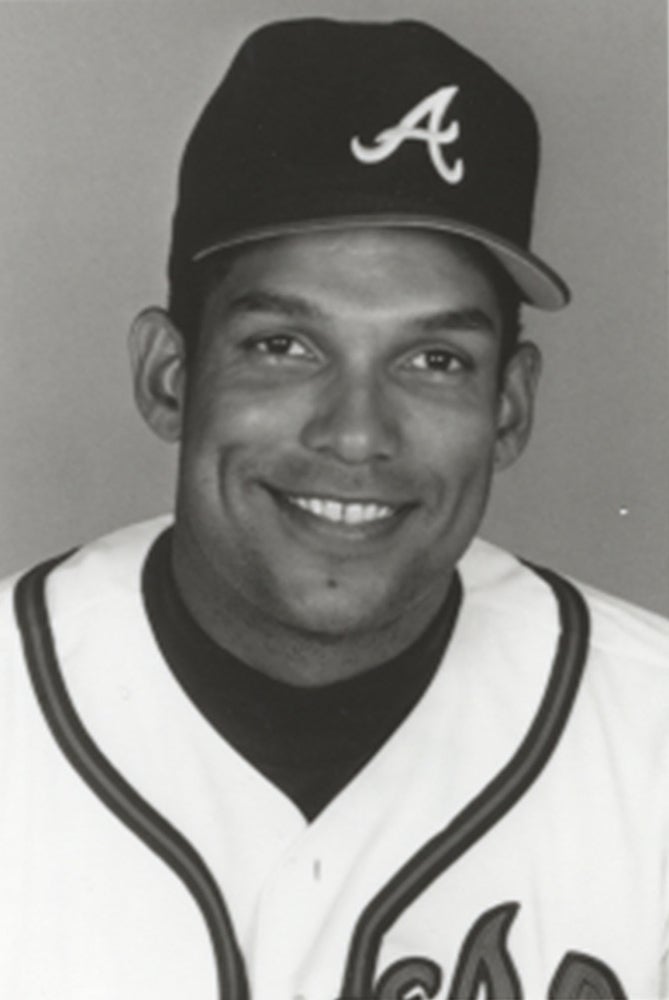
Justice would have to wait a few years for that honor, but he was nonetheless a huge part of a Braves team that became the talk of baseball in 1991 when they went from last to first in the National League West. Justice was hitting .297 with 11 homers and an NL-best 51 RBI in late June when he was sidelined with a strained back. He missed 48 games but returned in late August to help the Braves win the division, finishing with 21 home runs and 87 RBI in just 109 games.
In the NLCS vs. the Pirates, Justice hit a home run in Game 1 and scored the contest’s only run in Game 2. In Game 5, Justice appeared to score on a Mark Lemke single to give Atlanta a 1-0 lead in the fourth inning but was called out when the umpires ruled he did not touch third base on the way home. Replays appeared to show Justice’s cleats kicking up chalk from the bag as he brushed by the base but the call stood – and Pittsburgh won the game 1-0.
Justice went a combined 0-for-7 in Games 6 and 7 but Atlanta shut out the Pirates in both contests to advance to the World Series against Minnesota. With the Fall Classic tied at two games apiece, Justice’s two-run, fourth-inning home run in Game 5 opened the scoring and the floodgates as Atlanta won 14-5. But the Twins won the final two games at home to capture the title as Justice finished the World Series with a .259 batting average, two home runs, five runs scored and six RBI.
Justice’s 14 postseason games in 1991 would be the first of a remarkable 112 for his career. When Justice played his last postseason game in 2002, no one had played in more postseason games or totaled more RBI (63).
The Braves and the Pirates both returned to the NLCS in 1992, and Justice played a huge role in Atlanta reaching the World Series again. After hitting .256 with 21 homers and 72 RBI in the regular season, Justice hit .280 with two homers and six RBI in the NLCS. But it was a ball Justice hit that was ruled an error that proved to be one of the key plays of the series.
With Terry Pendleton on second base with no outs and the Pirates leading Game 7 by a score of 2-0 in the bottom of the ninth, Justice hit a ground ball to second base. Pittsburgh’s José Lind, one of the best fielders at the position in the game, tried to backhand the ball but it slithered under his glove, sending Pendleton to third and putting Justice on first. Five batters later, Francisco Cabrera’s two-out, pinch-hit single off Stan Belinda scored Justice and Sid Bream to give Atlanta a 3-2 victory and the National League pennant.
Once again, however, the Braves fell in the World Series – this time to Toronto as Justice batted .158 with a home run and three RBI.
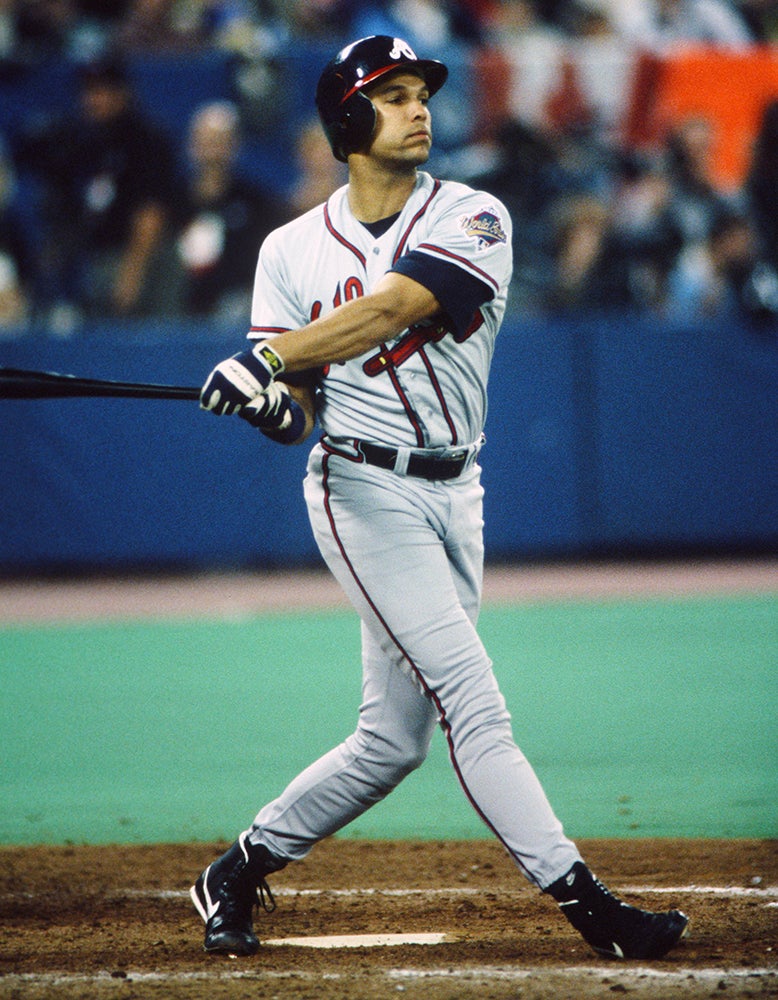
In 1993, Justice fulfilled his power potential and had a monster season, batting .270 with 40 homers and 120 RBI – the latter totals second in the NL only to Barry Bonds, who was named the league’s Most Valuable Player. Justice finished third in the MVP vote, was named to his first All-Star Game and captured a Silver Slugger Award. The Braves, however, lost to the Phillies in the NLCS.
After declining several extension offers from the Braves in 1993, Justice and the team agreed to a five-year, $27.5 million contract on Feb. 10, 1994. He hit .313 with 19 homers and 59 RBI in 104 games in the strike-shortened season of 1994.
Then in 1995, Justice hit 24 home runs and drove in 78 runs but batted just .253 as the Braves once again advanced to the World Series. Justice had just one RBI in seven postseason games leading up to the Fall Classic, then ignited a media firestorm when – prior to Game 6 of the World Series against Cleveland with the Braves up 3-games-to-2 – he criticized the enthusiasm of the Atlanta fans.
“What happens if we don’t win? Where’s the parade then? They’ll run us out of Atlanta,” Justice told the media as reported by the Atlanta Constitution. “If we get down 1-0 tonight, they will probably boo us out of the stadium. You have to do something great to get them out of their seats. Shoot, up in Cleveland they were down three runs in the ninth inning and they were still on their feet.”
Justice was booed by the crowd at Atlanta-Fulton County Stadium during the introductions for Game 6. But with the game scoreless in the bottom of the sixth, Justice led off the inning against Cleveland lefty reliever Jim Poole. On a 1-and-1 pitch, Justice sent a ball over the right field fence. It would be the only run the Braves would get – or need – as Tom Glavine shut out Cleveland for eight innings and Mark Wohlers slammed the door in the ninth.
“It was a really nerve-wracking day for me,” Justice told the Associated Press after the game. “I’ve never felt so much pressure in my life as I did today.
“When I hit it, I knew I got it.”
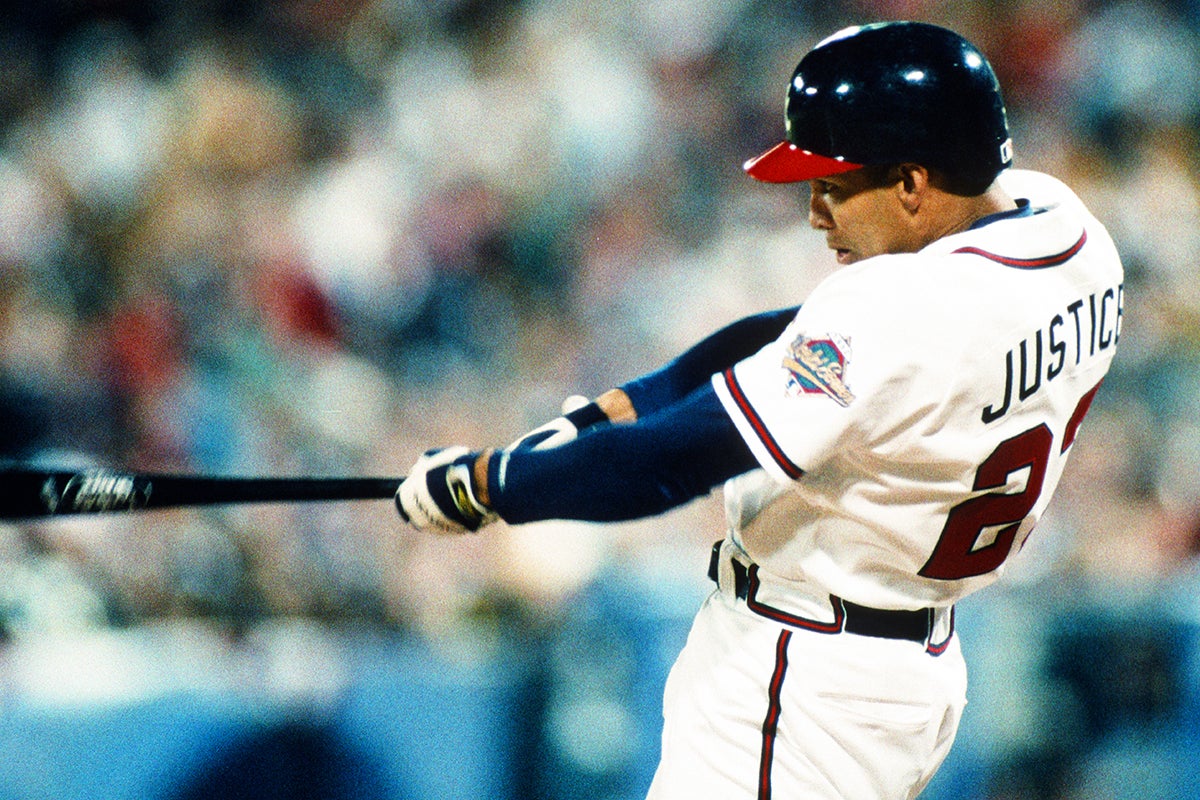
Justice needn’t have been nervous. Facing Poole, Justice was in his comfort zone – having hit well against lefties for his whole career. Justice hit .279 off left-handers – the exact same average he had off right-handers. He attributed his ability to hang tough off same-side pitchers to his closest childhood friend.
“When I was growing up, my best friend was a left-hander,” Justice told the Cincinnati Enquirer. “We used to play baseball every day. We didn’t throw easy to each other. We threw overhand and we threw hard. He was nasty. He had a curveball and everything.
“I’ve never had problems with lefties.”
The home run vaulted Justice to the top of the sports world, and he was already an “A List” celebrity thanks to his wife. In 1992, Justice was talking with an editor of the Cincinnati Herald when he mentioned actress Halle Berry. The editor was lining up an interview with Berry and asked Justice if he wanted him to try to arrange a date with the actress. Eight months later, Justice and Berry were married.
The marriage would last until 1997, four years before Berry became the first Black woman to win the Academy Award for Best Actress.
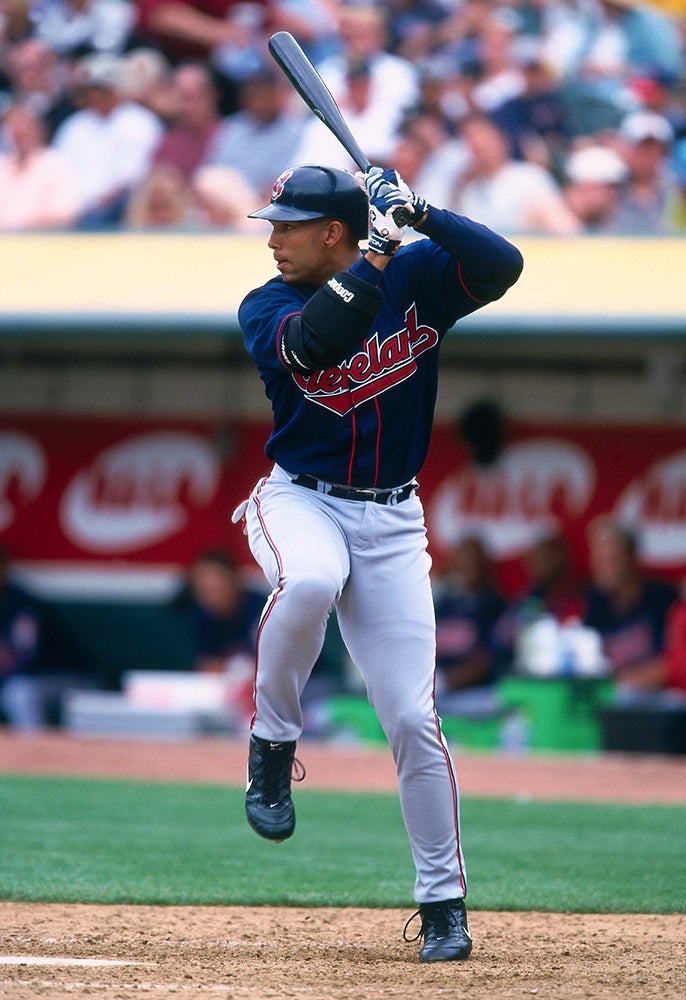
In 1996, Justice missed all but 40 games of the season after dislocating his right shoulder on a swing against the Pirates’ Denny Neagle on May 15. The shoulder had bothered Justice for much of the 1995 season and he opted for surgery to treat it, thus ending his campaign. It would turn out to be his final game with the Braves after Justice and Marquis Grissom were sent to Cleveland on March 25, 1997, in exchange for Kenny Lofton and Alan Embree in a blockbuster trade.
“I’ve known David since ’87, Triple-A ball,” future Hall of Famer and Braves teammate John Smoltz told the Constitution after the trade. “And as with anything over the years, when you lose guys and pick guys up, the cruelty of this is, you go on. I’m going to miss (him) a lot.”
Justice fit right into a potent Cleveland lineup, batting .329 with 33 homers and 101 RBI with a .418 on-base percentage while hitting out of the No. 5 spot most of the season. On May 20, he signed a four-year, $28 million extension that took him through the 2002 season.
“The exciting thing about this city is the fans,” Justice told the Associated Press when he signed his contract extension. “I thought it was exciting in Atlanta, but here it’s even better.”
Cleveland advanced to the World Series, where Justice drew six walks and drove in four runs. But he was 0-for-5 with three strikeouts in Game 7 as the Indians lost to the Marlins. Following the season, Justice won his second Silver Slugger Award and placed fifth in the AL Most Valuable Player balloting.
Justice hit .280 with 21 homers and 88 RBI in 1998 as Cleveland returned to the postseason, and he added a home run and six RBI in four games as the Indians beat Boston in the ALDS. But Justice and the Indians fell to the Yankees in the ALCS. He virtually duplicated his 1998 numbers in ’99, batting .287 with 21 homers and 88 RBI. Cleveland once again advanced to the postseason – Justice’s seventh season out of the last nine where he appeared in at least one postseason game – but was defeated by Boston in the ALDS as Justice went 0-for-8 with two walks.
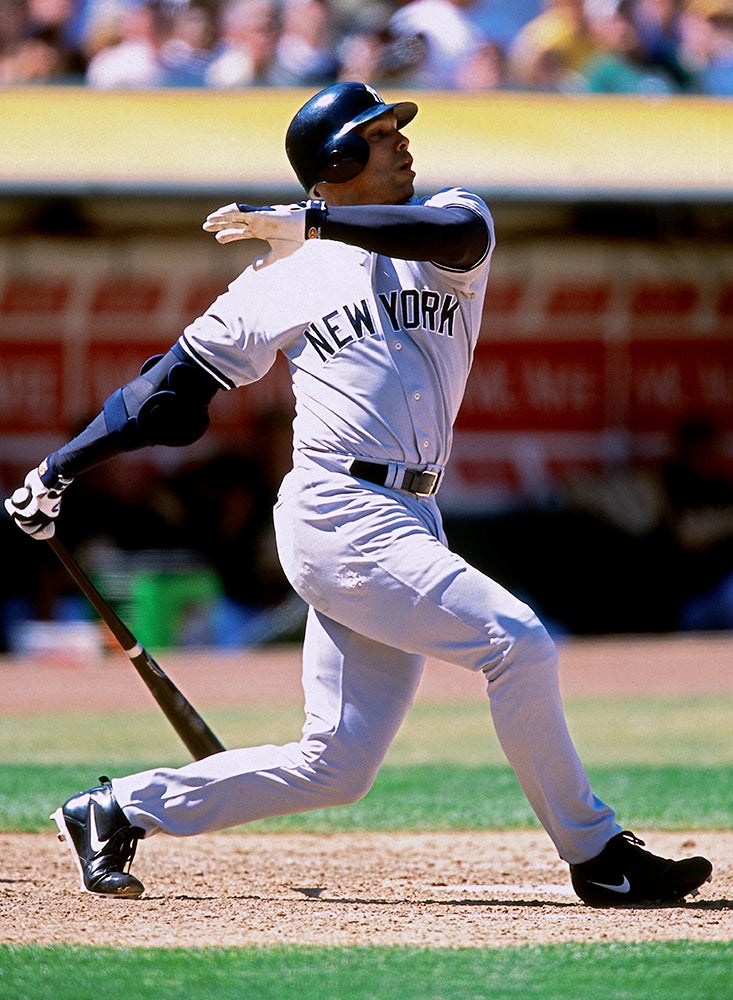
In 2000, Justice was batting .265 with 21 homers and 58 RBI through 68 games when Cleveland traded him to the Yankees on June 29 in exchange for Zach Day, Ricky Ledée and Jake Westbrook. Justice powered New York’s second-half surge that season by hitting .305 with 20 homers and 60 RBI in 78 games, finishing the season with 41 home runs and 118 RBI as the Yankees won the AL East title.
After the Yankees defeated Oakland in the ALDS, Justice took center stage in the ALCS vs. the Mariners – blasting a three-run home run off lefty Arthur Rhodes in the seventh inning of Game 6 to turn a 4-3 Seattle lead into a 6-4 New York advantage that eventually became a 9-7 victory that gave the Yankees the pennant. Justice was named the series MVP after totaling two home runs and eight RBI.
“It was just magic when I ran around the bases, just to see (Yankee Stadium) erupt and the fact that it put us up by two runs,” Justice told the Miami Herald. “It ranks right up there (among career highlights), close to that home run I hit in (the) 1995 (World Series).”
The Yankees went on to defeat the Mets in the World Series, with Justice contributing three RBI and three walks in the five games.
Justice was hampered by a groin injury in 2001 and missed more than a month of action, finishing the year with a .241 batting average, 18 homers and 51 RBI in 111 games. But he appeared in 14 postseason games, helping the Yankees advance to the World Series where they lost to the Diamondbacks.
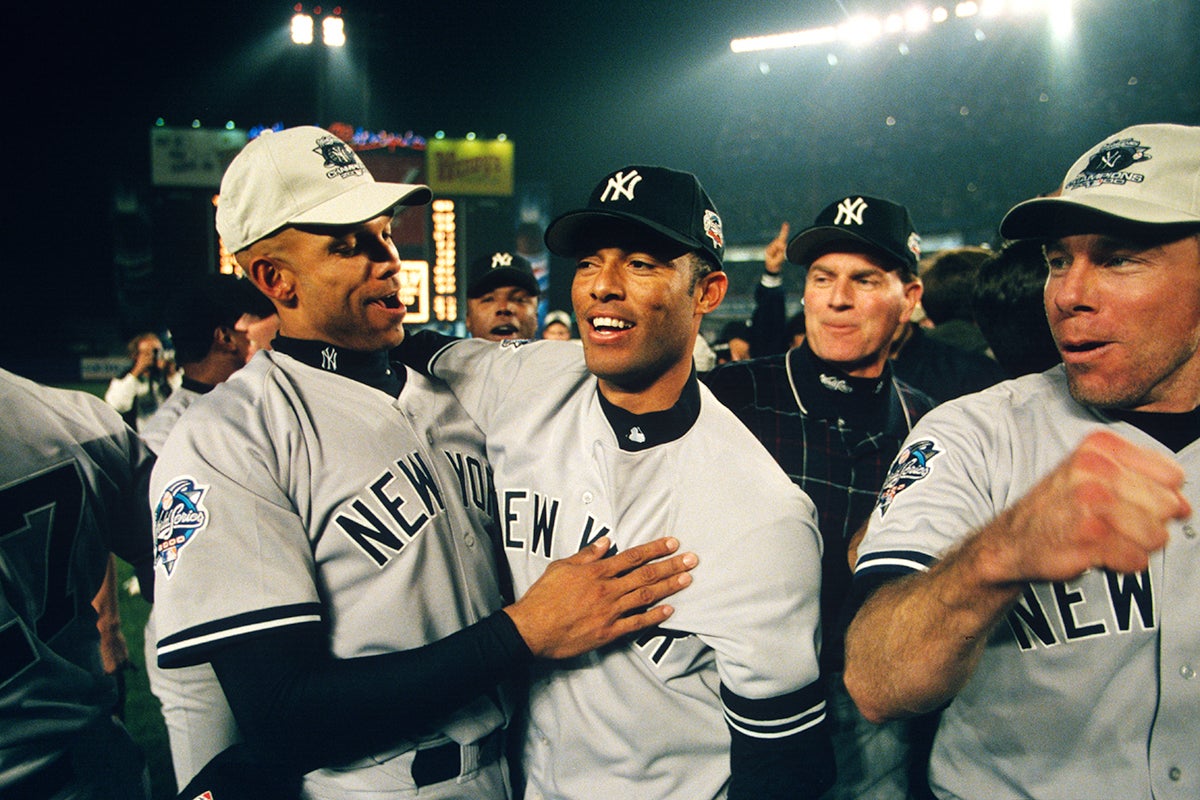
With one season remaining on his contract, Justice was traded to the Mets on Dec. 7, 2001, in exchange for Robin Ventura. Seven days later, the Mets traded Justice to the Athletics for Mark Guthrie and Tyler Yates.
But no matter the location, Justice always seemed headed for the postseason. He batted .266 with a .376 on-base percentage in 118 games in 2002, helping Oakland win 103 games and the AL West title. In the ALDS vs. the Twins, Justice appeared in the final postseason games of his career – hitting .238 with four RBI as Minnesota knocked Oakland out of the playoffs.
It marked the 10th time in Justice’s 14 seasons where he played in the postseason. Of the four where he did not, two came in his first two seasons with the Braves, another occurred in 1994 when the postseason was canceled (the Braves were in playoff position when the strike happened) and the final time was in 1996 when the dislocated shoulder ended his season (the Braves advanced to the World Series that year).
On Feb. 6, 2003, Justice announced his retirement.
“Fourteen seasons is long enough,” he told ESPN Radio. “I have a diminished desire to play.”
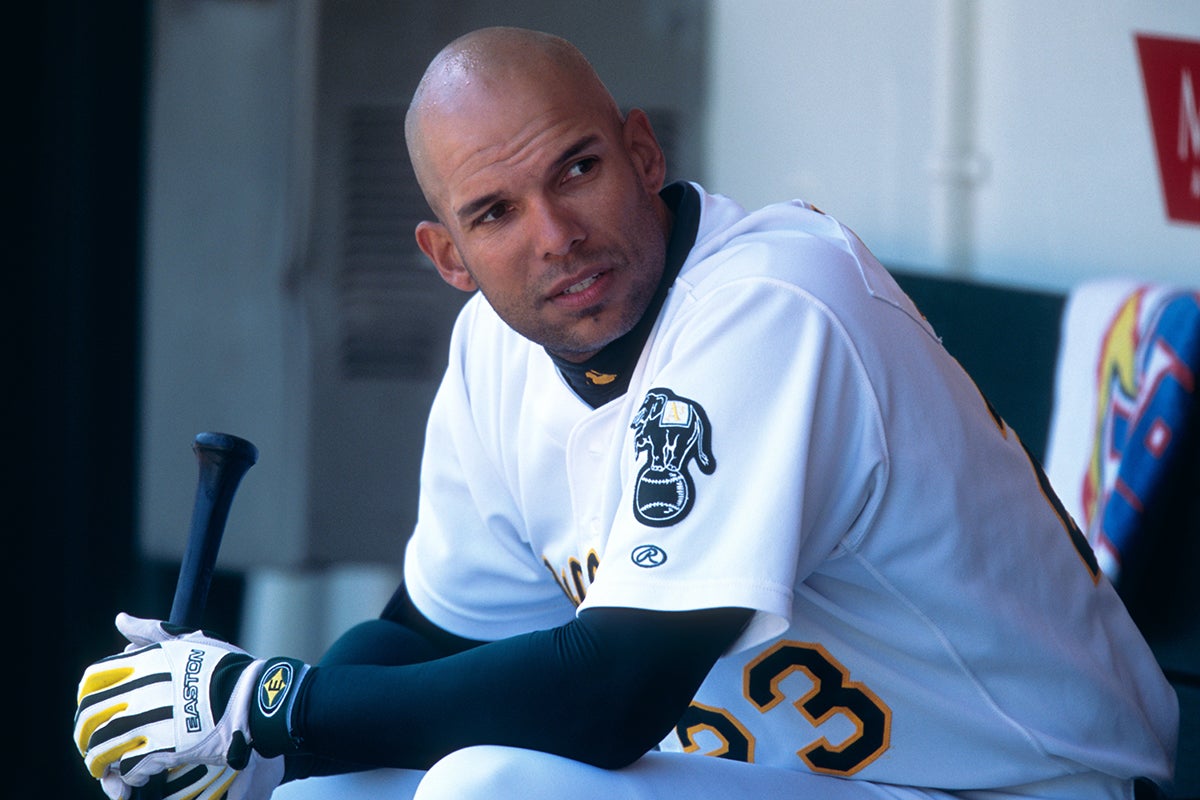
Justice spent several years broadcasting games for ESPN and YES Network. In 2007, he was elected to the Braves Hall of Fame.
He finished his career with 305 home runs, a .378 on-base percentage and 1,017 RBI to go along with three All-Star Game selections. But those impressive numbers pale in comparison to his record of helping his teams advance to October.
“The fact that so many playoff teams want Justice,” Hall of Famer Derek Jeter told the Miami Herald in 2000, “is a tribute to the kind of player he is.”
Craig Muder is the director of communications for the National Baseball Hall of Fame and Museum


